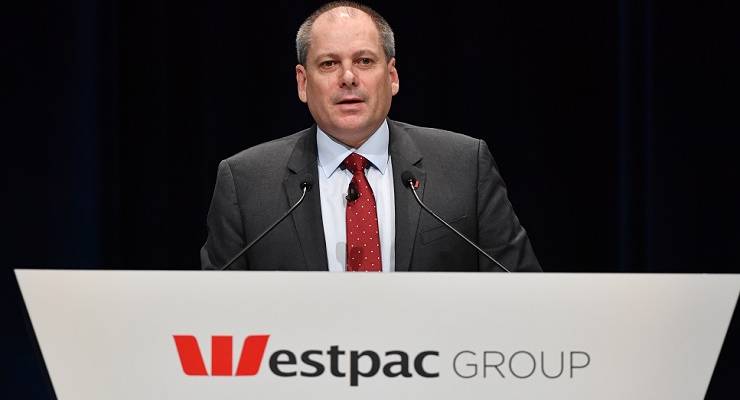
Westpac went into damage control over the weekend, taking out ads in major newspapers apologising “unreservedly” for its 23 million alleged breaches of money laundering laws.
The advertisement appeared in News Corp and Nine newspapers on Saturday, featuring a letter from Westpac’s new acting CEO Peter King admitting the bank’s transaction monitoring “should have been more robust”.
King added that “an apology is hollow unless it comes with action” and promised Westpac has closed some money transfer products, and would be making changes to transaction monitoring systems and hiring 200 people to its financial crime teams.
But Westpac isn’t the first organisation to opt for a full-page newspaper ad to try and gain back consumers’ trust.
In 2018, the CEO of another major bank, NAB, published a hand-signed letter in newspapers including The Australian and The Daily Telegraph, promising to “make things right” after a server error left thousands of business customers unable to operate.
Earlier this year, elite private boys school Sydney Grammar used a page-three ad in The Sydney Morning Herald to apologise to a student who had been sexually abused by one of the school’s teachers.
Facebook CEO Mark Zuckerberg promised consumers he would “do better for you” in a full-page letter published in newspapers across the world following the Cambridge Analytica scandal, which saw millions of users’ private data leaked to third-party companies without consent.
And in 2011, Rupert Murdoch used his own newspapers to publish a full-page advert declaring “We are sorry” for the News of the World phone-hacking scandal.
Taking out a print advertisement may have been the main way for companies to communicate with consumers pre-internet, when more people started their day reading the local paper, but are they still an effective way for organisations to mend relations and build trust in the wake of a business-ending scandal?
Gerry McCusker, consultancy principal at The Drill Crisis Simulator — an online crisis simulator which trains companies how to prepare for public relations catastrophes — told Crikey he thought Westpac’s printed apology was “unfortunately remarkably unimaginative and formulaic.
“I think when you start to produce a wallpaper-generic kind of response, you start to realise they are just a checklist item. That tells you it is an industry standard and that there is a lack of imagination.
“It’s rather bizarre that in this age of fast-moving multimedia where everyone is drenched in content that you see this [printed apology] format. It’s better than doing nothing, but not by a massive amount.”
McCusker also warned that, while “asserting your side of the story is valuable and important, if it actually fuels additional stories which further debunk your position, you are just giving the crisis a new breath of life and adding more fuel to the fire”.
This was the case for Crown Casino back in August who, in response to an investigation by Nine’s 60 Minutes, published ads in several major newspapers attempting to set the record straight. Nine’s newspapers not only refused to run the ads, but published an article responding to Crown’s claims.
Has Westpac’s apology won you over? Send your thoughts to boss@crikey.com.au. Please include your full name for publication.
Westpac went into damage control over the weekend, taking out ads in major newspapers apologising “unreservedly” for its 23 million alleged breaches of money laundering laws.
The advertisement appeared in News Corp and Nine newspapers on Saturday, featuring a letter from Westpac’s new acting CEO Peter King admitting the bank’s transaction monitoring “should have been more robust”.
King added that “an apology is hollow unless it comes with action” and promised Westpac has closed some money transfer products, and would be making changes to transaction monitoring systems and hiring 200 people to its financial crime teams.
But Westpac isn’t the first organisation to opt for a full-page newspaper ad to try and gain back consumers’ trust.
In 2018, the CEO of another major bank, NAB, published a hand-signed letter in newspapers including The Australian and The Daily Telegraph, promising to “make things right” after a server error left thousands of business customers unable to operate.
Earlier this year, elite private boys school Sydney Grammar used a page-three ad in The Sydney Morning Herald to apologise to a student who had been sexually abused by one of the school’s teachers.
Facebook CEO Mark Zuckerberg promised consumers he would “do better for you” in a full-page letter published in newspapers across the world following the Cambridge Analytica scandal, which saw millions of users’ private data leaked to third-party companies without consent.
And in 2011, Rupert Murdoch used his own newspapers to publish a full-page advert declaring “We are sorry” for the News of the World phone-hacking scandal.
Taking out a print advertisement may have been the main way for companies to communicate with consumers pre-internet, when more people started their day reading the local paper, but are they still an effective way for organisations to mend relations and build trust in the wake of a business-ending scandal?
Gerry McCusker, consultancy principal at The Drill Crisis Simulator — an online crisis simulator which trains companies how to prepare for public relations catastrophes — told Crikey he thought Westpac’s printed apology was “unfortunately remarkably unimaginative and formulaic.
“I think when you start to produce a wallpaper-generic kind of response, you start to realise they are just a checklist item. That tells you it is an industry standard and that there is a lack of imagination.
“It’s rather bizarre that in this age of fast-moving multimedia where everyone is drenched in content that you see this [printed apology] format. It’s better than doing nothing, but not by a massive amount.”
McCusker also warned that, while “asserting your side of the story is valuable and important, if it actually fuels additional stories which further debunk your position, you are just giving the crisis a new breath of life and adding more fuel to the fire”.
This was the case for Crown Casino back in August who, in response to an investigation by Nine’s 60 Minutes, published ads in several major newspapers attempting to set the record straight. Nine’s newspapers not only refused to run the ads, but published an article responding to Crown’s claims.
Has Westpac’s apology won you over? Send your thoughts to boss@crikey.com.au. Please include your full name for publication.









This brings tremendous comfort….I jest.
A letter likely penned by an advertising agency – and with the same degree of credibility.
Many convicted criminals declare remorse, but the remorse is often more about being caught and not about their criminal behaviour.
While Westpac’s apology is not bad, and there is a promise to change behaviour, which is also not bad, what is glaringly absent:
(a) an offer of ‘restitution’, in money terms which must be greater than they profited from the wrongdoing;
(b) a guilty plea and a willingness to pay substantial fines (ie. to be held accountable for the wrongdoing).
Without these there is no meaningful consequence nor general deterence, its just another corporate or public service body caught doing the wrong thing and saying ‘that’s in the past, we’ll do better in future’.
By the way I thought the number of ‘failures’ is closer to 29million. The smaller figure doesn’t count the instances excluded because the regulator was too slow and slack. Six million breaches can’t be prosecuted because of the statute of limitations. That doesn’t mean the crimes weren’t committed by Westpac, just that they can’t be prosecuted now.
It’s only words. We know that.
We know that if the RC hadn’t been held it would be business as usual :- traumatising and screwing customers for profit and money……
Bugger the empty platitudes and “remorse” – we know they’re only sorry they got caught.
So cut the crap.
I’d love to see someone at a share-holders meeting get up and ask ‘the bored’ to explain, simply, just how greed for profit corrupted their human morality.
And just what deals they cut with this government to protect them for as long as they did from that Hayne pain – and how they feel about this government after they dropped them like they did (it was all sunshine and roses while they were getting their cut/donations).
I can just imagine the next new ‘dodgy’ product business case risk assessment…
‘There is a high risk this product could be found to be illegal. However the risk to the company is small, can be managed, or in the worst case scenario involve minor costs.
. The regulator is inept and slow, so the likelihood of being caught is very small.
. If we are caught, promising the regulator we will make the product legal is highly likely to be acceptable to them. Publicly, the bank might suffer some small reputational cost. But this is likely to reflect on all banks to a significant degree as our behaviour is not that much out of the normal range. A one page apology published in a national newspaper and withdrawal of the product would be sufficient to address this. We might also need to sack some junior staff.
In conclusion, there is little downside. …there is no harm in trying this product. ‘
Who reads dead tree newspapers? And adblocker and its ilk block ‘full page’ online ads. No, Westpac you are wasting money. Employ some QA staff to check the code.